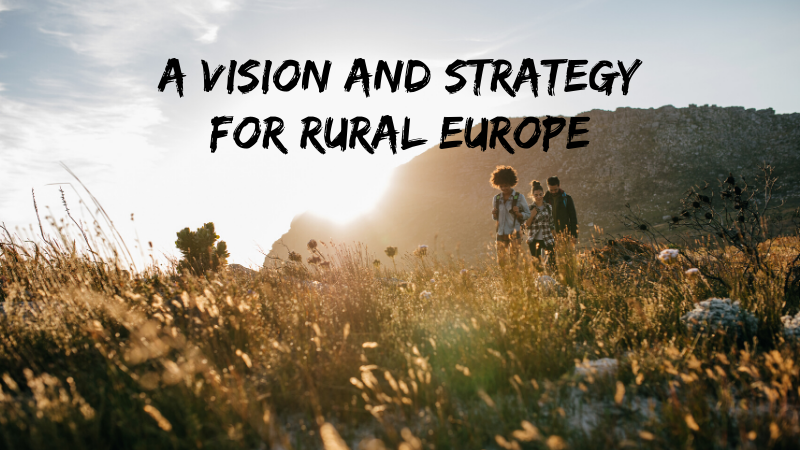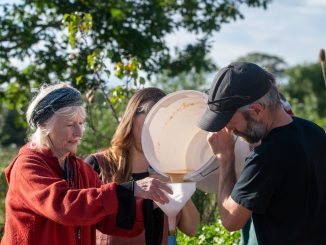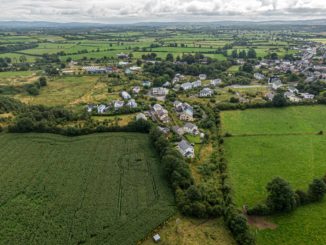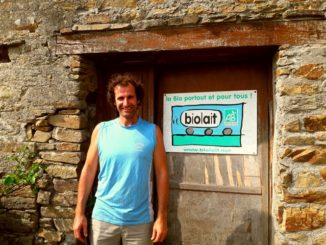ARC2020 brought together a wide range of civil society participants for the A Vision for Rural Europe event. This web conference was organised by the Renew Europe political group, was hosted in the European Parliament distributed all over Europe via web conference streaming services. In advance of the event, we asked civil society for their key questions to bring to the discussion, and to help in the building of a vision and strategy for rural Europe.
Civil society makes its voice heard
So what animated the participants who joined the web conference? In total people from 22 countries joined, with many taking the opportunity we gave to ask a question of the guest speakers, including Commissioner Ursula Von Der Leyen and Dacian Ciolos, leader of the Renew Europe group in the European Parliament. Time constraints meant that most could not actually be asked. However in the interests of helping to provide representation for rural civil society, we are publishing a selection of these below. So, what were people interested in? We’re organised contributions loosely by theme: some overlap, as is the nature of these things, but it gives a snapshot of the kinds of issues people focused on Rural Europe are interested in. (some are edited for brevity and clarity).

Policy
Policy was a big and recurring theme, with a number of angles and considerations. One was the coherence of the overall EU policy framework itself – or, the lack of it. In other words, where is the integration of policies, supports and funding?
Will there be coherence between the different supports and funding streams that will be available for rural regions – LEADER, Smart Villages, Green Deal, CAP, etc? How can we address the climate and ecological emergency and implement the just transition needed as we recover from the impacts of the Pandemic? Davie Philip Cultivate/Ecolise (Ireland)
The word integrated came up more than once, as did the emphasis on approaches that work on the ground with real communities, such as the EALRD (i.e. LEADER) approach. EU policies were described as “monosectoral” by and large, with coordination and governance from European to the national, regional and local level described as crucial.
To this end, the new rural consultation, proposed by the Commission and announced at this rural Europe event, could offer an opportunity for approaches that work to be adopted more generally, though EU consultations can often be box-ticking exercises, which is hardly inspirational.
Will the EU propose a comprehensive rural agenda in this new mandate, so to address equally all the multifaceted challenges rural people are facing? Samuel Ferret (CIHEAM IAMM France)
With the CAP process itself, a policy process which now gives member states more autonomy to develop their own strategic plans, participants also emphasised matching CAP National Strategic Plans with above and below – with the European Green Deal and bottom-up initiatives.
How could the process of developing CAP National Strategic Plans be used to trigger bottom-up rural initiatives, regional round tables and European networks, discussing and designing sustainable rural development programmes and projects that are in line with the European Green Deal? (Heino von Meyer, Ecologic Institute, Senior Policy Advisor Germany)
Overall, joining all the dots, from local to EU, taking into account the bigger picture challenges, as a core considerations of questioners. That, and the fact that rural has its own specificities, which are not simply reducible to agri-food issues.
Rural areas are so unique and rich in the human, natural, cultural and other resources that often (especially in decision making) is left out. Rural should not be contrasted to urban or measured by the same economic viability. Neither rural should be seen and empowered mainly by farming, which is important, but just one of the scopes of European countryside. Enough resources should be given to rural development to provide support and given opportunities to react on present needs, tendencies, desires and opportunities, building on cohesion, developing innovations and quality of life here in Europe. Anita Selicka Latvia
Community-led
In many ways, the rurally focused community-led local development, in operation for 20 year snow, shows what can be done elsewhere when policy coherence is, to at least some extent, taken seriously: CLLC is a model that learnings can be taken from, for future policy integration.
We, from ELARD believe that earmarking for rural development is a must in order for all states and regions to use EUs funding accordingly. Our experience with CLLD (Community-led local development) shows, that only this type of steering (earmarking) makes member states and regions move in directions like rural development, services in rural areas and other. We see CLLD as one of the measures that should be earmarked as well, but not only. Marion Eckardt (ELARD Sweden/EU)
Whatever the model, participation is key. As Amelie Krug (Ecolise Germany) puts it: “We are convinced that the participation of communities is the key to the behavioral shift that is needed to succeed in staying within the planetary boundaries.” Moreover, rural communities much be mobilised, while mechanisms must also be found to help, less active rural communities suffering from “depopulation, aging or a lack of social capital.” (Marina Guedon Forum Synergies Spain).
How can we allocate land efficiently to meet the demand for a range of services in rural areas? For example: land competition and conflicts between recreational, agricultural, residential, infrastructures, energy, factories, nature conservation. Tristan Berchoux (CIHEAM France)
Specifics
While broader policy questions featured, so too did specifics. Social innovation in a rural context was also to the forefront in people’s thoughts, with learnings from established models such as the perennially resilient, robust cooperatives (Noreen Byrne UCC, Ireland) and new initiatives like Smart Villages, digitalisation and the circular economy (Nancy Samargiu NRN Romania) emphasised – especially in a post covid-19 context.
Generational renewal
Generational renewal and intergenerational cooperation is a key rural consideration.
How do we sensitively deal with the older generation of the farming community when devising and implementing generational renewal policy strategies? Extensive research from Ireland clearly shows that retirement schemes are not the answer. Shane Conway NUIG/NRN, Ireland
Moreover, as Sara Sjoqvist (Vingåker municipality Sweden) emphasised “young people in general want to influence decision making processes and contribute to social change. Public authorities and actors can through different programs support both private and civil society actors to include young people to a greater extent. Public actors can also choose to create institutions for youth influence, such as youth councils. However, should public actors, municipalities for instance, have a compulsory mission to create conditions and build systems for young people to be included in local democracy?”
Employment
Blandine Camus (Euromontana, France) noted the need for “the creation of qualified and sustainable jobs, in all rural areas including remote ones and not only in the agriculture sector?”. Rural areas can also add value, and not just be primary producers, if integrated approaches to development are operationalised.
A Common Forestry Policy
Is this the time to launch a Common Forestry Policy? Forests can contribute greatly, and in all countries, to the European Green Deal and the Biodiversity Strategy. International cooperation is needed in sustainable forest management, in the control of forest fires and forest diseases, and in sustaining international standards of forest products. (Michael Dower, England Prepare)
Rural digitalisation
Matteo Metta (ARC2020 and DESIRA Italy) asked how we can invest in public digital services to increase the quality of life and wellbeing in rural areas? Moreover, Ava Bremse (Estonian Rural Network Unit Estonia) said:
The COVID-19 crisis has clearly shown that good Internet access, broadband incl last-mile connections are essential for the modern development of rural life and rural business. Also the development of various forms of rural tourism must also be given greater focus. Local tourism has become more important than ever.
Conclusion
Commissioner Von der Leyder announced a rural consultation at this event, the known details of which are outlined in the event report (first link below). We in ARC2020 believe in a thoroughly transparent, representative and participatory way to engage with rural civil society, so we will be encouraging this more inclusive approach to any rural consultation that does emerge. Our rural dialogues, our mobilisation of civil society at this event, our publication of a working document for rural Europe, and finally for now our reporting on this event and process is part of this more engaged process. We believe rural civil society actors should come together to continue this participatory process. We must, in the months ahead, work out a mechanism where all interested civil society parties develop our vision nad strategy together.
More on the Vision for Rural Europe Event and Process
Working Document on “A Vision and Strategy for Rural Europe – Now.”
Join Us in Generating a Vision & Strategy for Rural Europe – Now!





